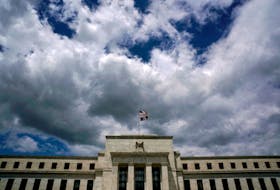By Steven Scheer and Ari Rabinovitch
JERUSALEM (Reuters) - Ultra-Orthodox Jewish parties did well in Israel's national election and will likely bring hefty demands for more government payouts to coalition talks, making it harder for Prime Minister Benjamin Netanyahu to rein in a growing budget deficit.
Two religious parties, often political kingmakers in the past, were projected to win a combined 16 of 120 seats in parliament, three more than they have now. Their support is essential for Netanyahu should he opt to form a right-wing coalition, rather than seek a broader unity government with centrist rivals.
Ultra-Orthodox Jews, known as Haredim, make up about 10 percent of Israel's population and, with their typically large families, that percentage is expected to swell.
They receive state benefits, stipends and military exemptions that allow many to devote time to religious studies rather than joining the workforce.
Just around half of Haredi men are employed, an issue long identified by economists as a drag on Israeli growth. At the same time, more than 70 percent of Haredi women work but their salaries are well below the average of non-Haredi women.
The two parties, United Torah Judaism (UTJ) and Shas, pledge to try to keep or even build on the status quo, disregarding warnings from Israel's central bank and groups like the International Monetary Fund of a future crisis without change.
"Having stronger power would mean that they would have stronger leverage for obtaining higher stipends for (seminary) students," said Eitan Regev, an economist at the Israel Democracy Institute.
CUTS PUT MORE HAREDI IN WORK
He noted that when stipends were cut in a short-lived government without Haredi parties after the 2013 election, more men joined the workforce. Allowances were raised again two years later in a new government, halting the rise in numbers of employed Haredi, Regev said.
UTJ co-head Moshe Gafni said Netanyahu had called him since polls closed late on Tuesday to discuss a partnership.
Israel's budget deficit is rising, forecast to reach nearly 4 percent of gross domestic product this year - well above the 2.9 percent target. Although ratings agencies Fitch and S&P said Israel was not at risk of a downgrade in the near term, austerity measures seem unavoidable.
The Bank of Israel has called for a combination of spending cuts and tax increases to keep the budget from spiraling out of control. After the new government is in place, discussions on the 2020 and possibly a dual 2020-2021 budget will begin.
"It will be very difficult to consolidate the budget," said Leader Capital Markets chief economist Jonathan Katz, noting much depended on how much pressure Netanyahu will be able to withstand. "The big question is, 'Will it be a macro story of billions of shekels, or hundreds of millions?'"
In the longer term, the parties could delay the integration of a chunk of the population into the workforce, something the Bank of Israel has singled out as a top economic priority.
A recent study by the central bank found that economic growth would slow if the issue is not addressed.
"Comprehensive and persistent policy in these areas will contribute to increasing the standard of living for all population segments and to reducing inequality in the economy," it said in its 2018 review.
(Editing by Mark Heinrich)









